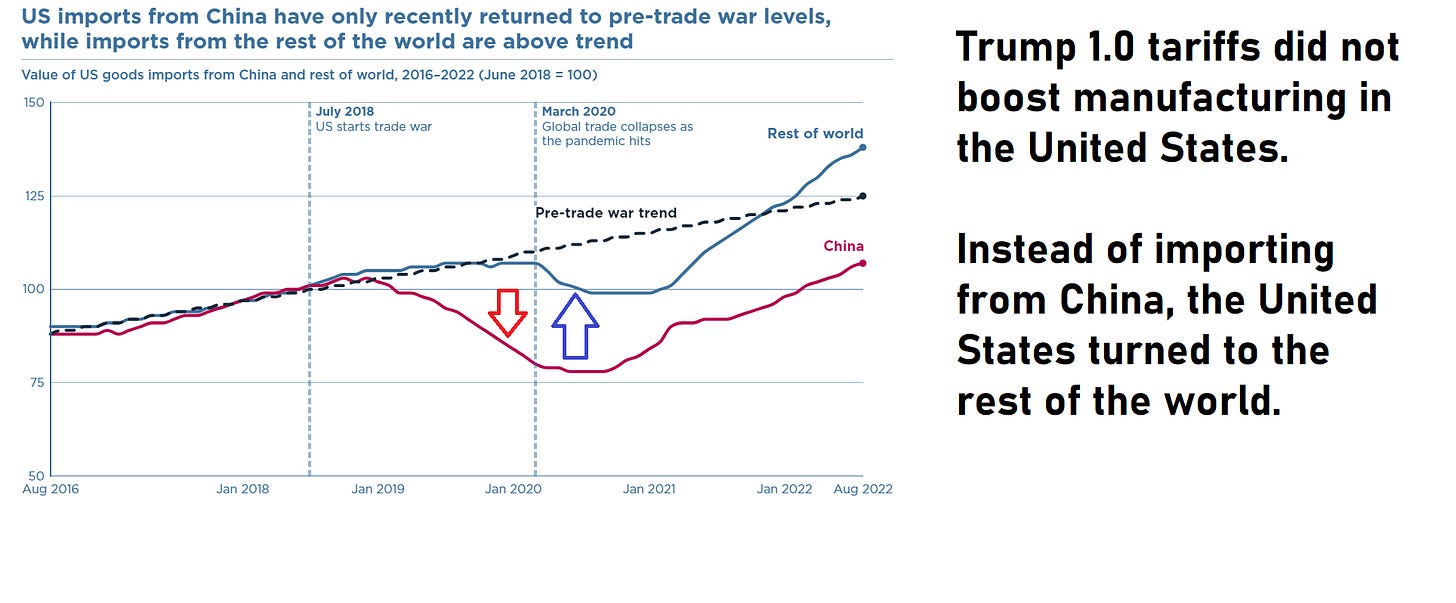Trump's Tariffs' First Casualty: Brexit
The Western Oligarch Movement Faces Its First Setback
An EU official told POLITICO that Trump’s return to power has EU officials looking across the Channel: “Two people have told me in the last 48 hours that the policy response to Trump involves massive investment in defense, planning for how to handle tariffs, and forging new security agreements with third countries. The U.K. was at the top of the list.”
What is Tariff and what did Trump say?
A tariff is a tax on imported goods, but it isn’t paid by the exporting country.
U.S. tariffs would be paid by companies importing products, increasing their costs.
President-elect Trump wants to impose a blanket tariff of 10% to 20% on all imports.
Special attention will be given to China, as additional tariffs of 60% to 100% may be imposed on products imported from there.
Is this possible?
Not right away.
Any country affected by Trump’s tariffs will respond, creating a back-and-forth before the situation stabilizes. But the Trump 2.0 administration will likely push forward in some form, as posturing is crucial to its image.
What happened when Trump 1.0 imposed tariffs on Chinese products? Did it hurt China?
Nope.
Chinese exports to countries around the world continued to grow despite the tariffs imposed by the Trump administration.
How did this happen?
The tariffs strained and lengthened the US supply chain.

Chinese goods still made it to the U.S., but often via other countries. As direct trade with China decreased, U.S. trade with other nations, including Vietnam, Mexico, Indonesia, and Taiwan, surged. This longer supply chain meant that U.S. consumers ended up paying more for the same products.
The Problem with Purpose-less Tariffs: What does the MAGA world want from tariffs?
If the goal is to push companies to buy American-made products and revitalize the industrial base, a long-term strategy is needed. This approach could include tariffs alongside substantial federal investment in U.S. manufacturing. It would require a slow, steady, and committed approach, working industry by industry. The strategy would focus on developing key industries, providing subsidies, and gradually raising tariffs so that imports are costlier than American-made goods.
But tariffs can’t be too high, either, because once U.S. production reaches baseline demand, American producers will need to export and compete internationally.
You still need other countries to buy American goods. Imagine if Apple never sold iPhones outside the United States. At some point, their revenue would stop growing, and they would hit a plateau. What happens then?
An effective tariff strategy requires long-term focus and careful planning. The question is, are these tariffs being used strategically, or are they merely a tool for the MAGA crowd to appear tough by targeting other countries? If it’s done for show, such an approach risks long-term trading opportunities for American manufacturers while increasing costs for American consumers. It’s great for Fox News, X users, and right-wing podcasters, but not so much for the U.S. industrial and agricultural base.
A Counterproductive Trade War:
The first casualty of a Trump-led trade war will be Brexit. Trump was a strong supporter of Brexit, and many right-wingers see Brexit as a critical step toward weakening the EU, which they believe obstructs oligarchic control. The EU’s stability and cohesion makes it harder for the ultra-wealthy to exploit favorable tax breaks and subsidies; negotiating with the EU bloc is far more difficult than with a figure like Hungary’s Viktor Orbán.
That’s why Brexit was celebrated by right-wing circles. But Trump’s tariffs will trigger the opposite effect, bringing the U.K. and the EU closer than ever, potentially making Brexit meaningless.
So, thank you, Team Trump, for undoing the efforts of the would-be oligarchs to divide the U.K. and the EU.
Meanwhile, Americans can prepare for rising prices.







The unintended consequences of Trump's short-term actions will be legion. That's the underlying problem. Too many unintended outcomes quickly devolves into chaos - which simply empowers more short-term actions. Without an alternative long-term view expressed from a position of power, continuing chaos will result in collapse. Except for the billionaires - they will float above the mayhem.